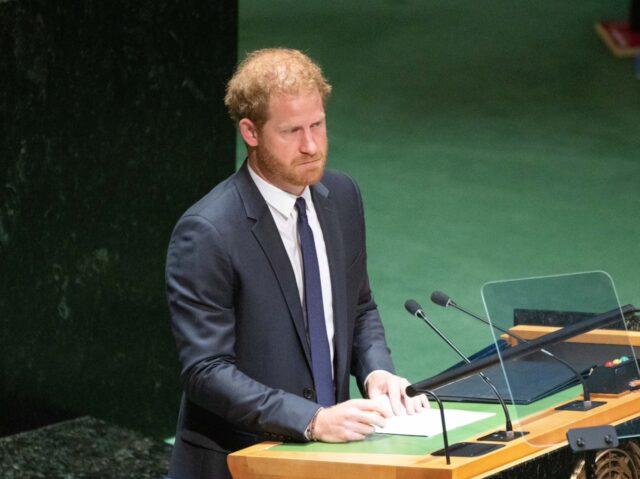U.S. Supreme Court Justice Samuel Alito mocked Prince Harry, Boris Johnson, Emmanuel Macron, Justin Trudeau, and other foreigners who have taken it upon themselves to intervene in America’s abortion debate.
In a speech to Notre Dame Law School’s Religious Liberty Summit in Rome, Italy, the conservative justice quipped he “had the honour this term of writing I think the only Supreme Court decision in the history of that institution that has been lambasted by a whole string of foreign leaders who felt perfectly fine commenting on American law,” referring to the overturning of Roe v. Wade.
“One of these was former prime minister Boris Johnson — but he paid the price,” Justice Alito joked, winning applause from the crowd, in reference to the British premier’s imminent departure from office after politicians from the Conservative (Tory) Party ousted him as their leader following a series of scandals.
“Post hoc ergo proper hoc, right?”
Justice Alito also namechecked President Emmanuel Macron of France and Prime Minister Justin Trudeau of Canada as interlopers, but said that “what really wounded me” was the intervention of Meghan, Duchess of Sussex’s husband, Prince Harry.
“[T]he Duke of Sussex addressed the United Nations and seemed to compare the decision whose name may not be spoken with the Russian attack on Ukraine,” he said, with the mere mention of Prince Harry’s courtesy title eliciting laughter.
“Well, despite this temptation, I’m not going to talk about cases from other countries — all I’m going to say is that, ultimately if we’re going to win the battle to protect religious freedom in an increasingly secular society we will need more than positive law,” he continued on a more serious note.
While the mainstream media has focused on the judge’s jabs at Prince Harry and his fellow-travellers, his speech was focused primarily on religious liberty, which he warned was “under attack in many places, because it is dangerous to those who want to hold complete power.”
“I’m not very well positioned to talk about religious liberty outside the United States, Europe, and other economically advanced countries, but in those places, religious liberty is facing a different challenge,” he said, naming that challenge as the increasing “turn away from religion.”
“Polls show a significant increase in the percentage of the population that rejects religion or thinks it’s just not all that important, and this has a very important impact on religious liberty, because it is hard to convince people that religious liberty is worth defending, if they don’t think that religion is a good thing that deserves protection,” he explained.

COMMENTS
Please let us know if you're having issues with commenting.